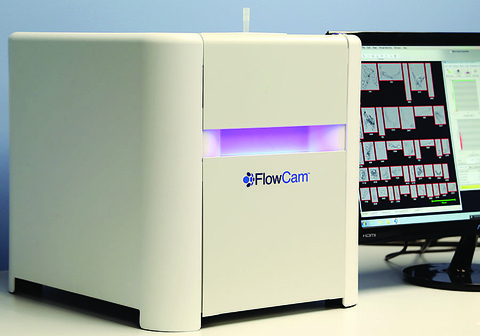
The FlowCam 8400 from Fluid Imaging Technologies has been used to investigate particle formation in a variety of domestic kettles.
Microplastics are becoming increasingly recognised as a threat to both human health and the natural environment. These particles are the breakdown products of the plethora of everyday plastic products now surrounding us, generated by mechanical, thermal, UV and other means, which enter the ecosystem where they are only very slowly degraded. Microplastics can now be found in a wide variety of human foodstuffs, such as honey, sea salt, beer and sugar. Most plastic polymer blends contain harmful ingredients such as plasticisers or monomers, which are commonly classified as carcinogenic and dangerous.
The mechanics of microplastic generation (particles smaller than 5 mm) are poorly understood and quantitative data regarding this important process is sparse. A study reported in Analytik News has used Fluid Imaging Technologies’ FlowCam 8400 dynamic image analysis system to investigate microplastic formation during a normal boiling cycle in a range of different plastic kettles. Results were then compared to particle formation in a glass kettle.
The FlowCam 8400, which is a combination of a flow cytometer and an optical microscope, can capture up to 10,000 particle images per minute and quantify more than the 30 different parameters related to size and morphology. In this study a statistical evaluation of the particle size distribution and the particle concentration per millilitre of water sample was obtained for each kettle and accurate comparisons between products made.
Results showed significantly higher particle generation rates after boiling water in plastic-based kettles in comparison to a glass kettle. Furthermore, microplastic generation rates increased in some kettles after repeated usage. The resistance to degradation of plastic appears to be related to the chemical composition of constituent polymers. Polymers such as polyethylene and polypropylene, often used in kettles, are very susceptible to thermal degradation, even at room temperature.
The FlowCam 8400 can be equipped with four different objective lens which allows particle analysis in a size range between 1 and 1000 µm. This is particularly important because particle size is the decisive factor for the transport of plastic particles within the human body. Application of the FlowCam 8400 can therefore lead to a much greater understanding of the problems associated with microplastic formation.
The FlowCam 8400 is sold in the UK by Meritics at http://meritics.com




